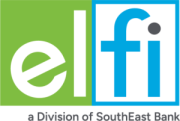Parent student loans can help your child pay for college, especially if you have strong credit. The best options offer low rates, flexible repayment terms, and no origination fees. Compare the best lenders below.




with autopay

Table of Contents
Best private parent student loans
We selected these lenders for their strong combination of low rates, borrower-friendly terms, and unique benefits for parents or supportive adults. While federal Parent PLUS Loans are still worth considering for their protections, private parent loans may offer better overall value depending on your situation.
College Ave

Why it’s one of the best
College Ave offers student loans, including parent loans, and you don’t need to be a parent to qualify. You can take out a College Ave parent loan on behalf of your grandchildren, nieces or nephews, or a student for whom you have legal guardianship.
With three repayment options over five to 15 years, College Ave loans can work for almost every budget. But College Ave doesn’t provide a grace period. You must pay at least your monthly interest charges while your child is in school.
- Flexible repayment plans and terms
- No application, origination, or prepayment fees
- 3-minute application
Loan details
| Fixed Rates (APR) | 2.95% – 17.99% |
| Variable Rates (APR) | 4.24% – 17.99% |
| Loan amounts | $1,000 – 100% of certified costs |
| Repayment terms | 5 – 15 years |
Eligibility requirements
- Must be a U.S. citizen or permanent resident
- Must pass credit history and income review
- Student must attend an eligible institution
- Student must meet the school’s satisfactory academic progress (SAP) guidelines
Citizens Bank

Why it’s one of the best
Citizens Bank makes it easier to plan ahead with its multi-year approval option. That means once you’re approved, you may not need to reapply each year, helping avoid surprises and delays in funding.
There are no application, origination, or disbursement fees. You can also score a loyalty discount if you or your child already bank with Citizens. Parents, guardians, and even other supportive adults can qualify as borrowers.
- Multi-year approval simplifies future borrowing
- Loyalty discount for existing customers
- No fees
Loan details
| Fixed Rates (APR) | 3.99 – 15.60 |
| Variable Rates (APR) | 4.98 – 15.59% |
| Loan amounts | $1,000 – $100,000 |
| Repayment terms | 5, 10, or 15 years |
Eligibility requirements
- Must be a U.S. citizen or permanent resident (international applicants eligible w/ cosigner)
- Student must be enrolled at least half-time
- Minimum income: $12,000/year
- Minimim credit score: 640
Earnest

Why it’s one of the best
Earnest lets parent borrowers defer payments while their children are in college. Then when your child leaves school, you’ll enjoy a nine-month grace period before any payments are due. You can use that time to pay down your principal, but you’re not required to pay anything.
Earnest matches competitors’ rates and offers a 0.25% autopay discount, ensuring you get the best rate possible. To qualify for an Earnest parent loan, you’ll need a minimum 650 credit score, $35,000 or higher annual income, and no bankruptcies or accounts in collections.
- Deferred payments while the student is in school
- 9-month grace period
- Not available in Nevada
Loan details
| Fixed Rates (APR) | 2.95% – 16.49% |
| Variable Rates (APR) | 4.99% – 16.85% |
| Loan amounts | $1,000 – 100% of certified costs |
| Repayment terms | 5, 7, 10, 12, or 15 years |
Eligibility requirements
- Must be the age of majority in state of residence
- U.S. citizen, permanent resident, DACA recipient, or asylee.
- Minimum of three-year credit history
- Student must enroll at least half-time
- Only bachelor’s degree programs and higher
- Student must attend a Title IV-qualified, not-for-profit, 4-year institution
SoFi

Why it’s one of the best
SoFi® parent loans are built for borrowers from the bottom up. You won’t pay origination or late fees when borrowing from SoFi. Plus, take advantage of exclusive members-only benefits, including financial planning and rate discounts if you take out another SoFi loan.
SoFi doesn’t defer payments, so be prepared for immediate repayment. You’re only required to pay interest while your child is in school. Plus, you can use the points you earn through the SoFi Member Rewards Program to pay down your loan faster.
- No fees
- Multiple rate discount options
- Earn points with SoFi Member Rewards
Loan details
| Fixed rates (APR) | 3.99% – 16.85% with autopay |
| Variable Rates (APR) | 5.82% – 16.85% with autopay |
| Loan amounts | $1,000 – 100% of certified costs |
| Repayment terms | 5, 7, 10, or 15 years |
Eligibility requirements
- U.S. citizen, permanent resident, or non-permanent resident alien
- Only bachelor’s degree programs and higher
- Student must enroll at least half-time
- Student must attend an eligible institution
ELFI

Why it’s one of the best
ELFI is known for its standout customer service. Every borrower is matched with a personal loan advisor who provides one-on-one support from application to final payment. That’s especially helpful if you’re navigating student lending for the first time.
While ELFI doesn’t offer in-school deferment for parent loans, its low interest rates and lack of fees make it competitive. Strong credit is required, but the personalized service makes the process easier.
- Personalized support from a dedicated advisor
- No application or origination fees
- Competitive fixed and variable rates
Loan details
| Fixed Rates (APR) | 2.99% – 14.22% |
| Variable Rates (APR) | 5.00% – 14.22% |
| Loan amounts | $1,000+ |
| Repayment terms | 5, 7, 10, or 15 years |
Eligibility requirements
- Must be a U.S. citizen or permanent resident
- Student must be enrolled at least half time
- Minimum credit score: 680
- Minimum income: $35,000/year
Can you get parent student loans with bad credit?
Yes, you can still get a parent student loan with bad credit—but your options may be limited, and interest rates may be higher. Here are a few paths to consider:
- Apply with a co-signer: Some lenders allow you to apply with a creditworthy co-signer, which can boost your chances of approval and help secure better rates.
- Look for flexible underwriting: Some lenders may be more lenient if you meet their other criteria, such as income and education level, even with a lower credit score (minimum 650). Citizens Bank, for example, has a minimum credit score of 640 and minimum income of just $12,000.
- Credit union options: Regional credit unions may have more flexible underwriting and personalized service. These aren’t always listed in national marketplaces but can be worth exploring locally.
- Consider HELOCs or personal loans: If you own a home and have equity, a home equity line of credit (HELOC) might offer better terms than a bad-credit student loan. Personal loans are another alternative but typically come with shorter repayment periods.
If your credit score is below 600, you may struggle to qualify without a co-signer. In that case, explore federal Parent PLUS Loans, which only require that you don’t have an adverse credit history, not a high credit score.
How we chose the best parent student loans
LendEDU evaluates student loan lenders to help readers find the best student loans. Our latest analysis reviewed 725 data points from 25 lenders and financial institutions, with 29 data points collected from each. This information is gathered from company websites, online applications, public disclosures, customer reviews, and direct communication with company representatives.
These star ratings help us determine which companies are best for different situations. We don’t believe two companies can be the best for the same purpose, so we only show each best-for designation once.
| Company | Best for… | Rating (0-5) |
|---|---|---|

|
Best Overall |
|

|
Best for Multi-Year Approval |
|

|
Best for Large Loans |
|

|
Best Member Benefits |
|

|
Best for Personalized Support |
|

|
Best for Texas |
|
About our contributors
-
 Written by Melody Stampley, CEPF®
Written by Melody Stampley, CEPF®Melody Stampley is a personal finance writer and Certified Educator in Personal Finance® with 10-plus years of combined experience in writing, editing, and finance. She specializes in credit, loans, budgeting, saving, and insurance. Melody is a mother who enjoys helping others become free and empowered to show younger generations good stewardship practices.
-
 Edited by Amanda Hankel
Edited by Amanda HankelAmanda Hankel is a managing editor at LendEDU. She has more than seven years of experience covering various finance-related topics and has worked for more than 15 years overall in writing, editing, and publishing.
-
 Reviewed by Crystal Rau, CFP®, CRPC®, AAMS®
Reviewed by Crystal Rau, CFP®, CRPC®, AAMS®Crystal Rau, CFP®, CRPC®, AAMS®, is a Certified Financial Planner based in Midland, Texas. She is the founder of Beyond Balanced Financial Planning, a fee-only registered investment advisor that helps young professionals and families balance living their ideal lives with being good stewards of their finances.